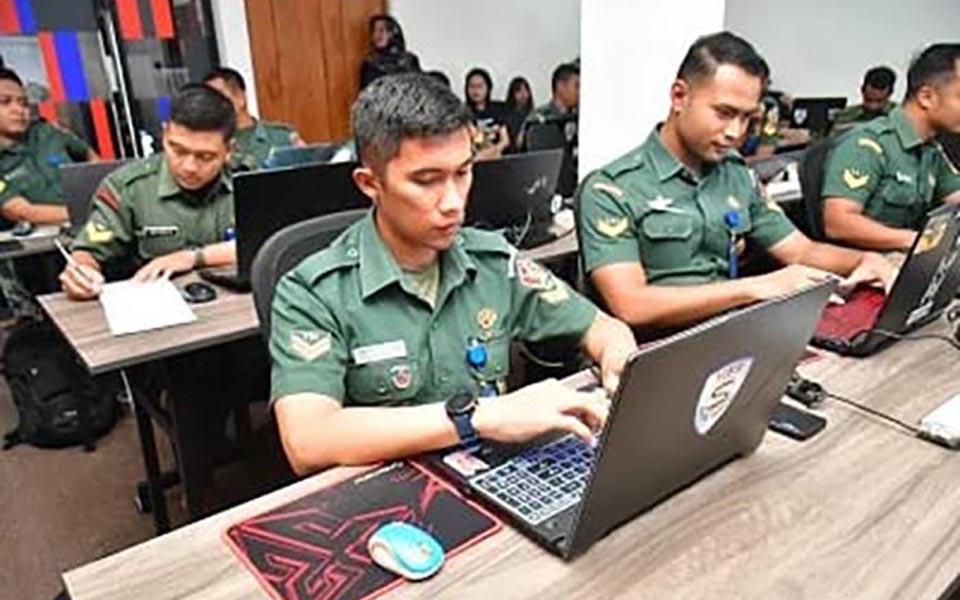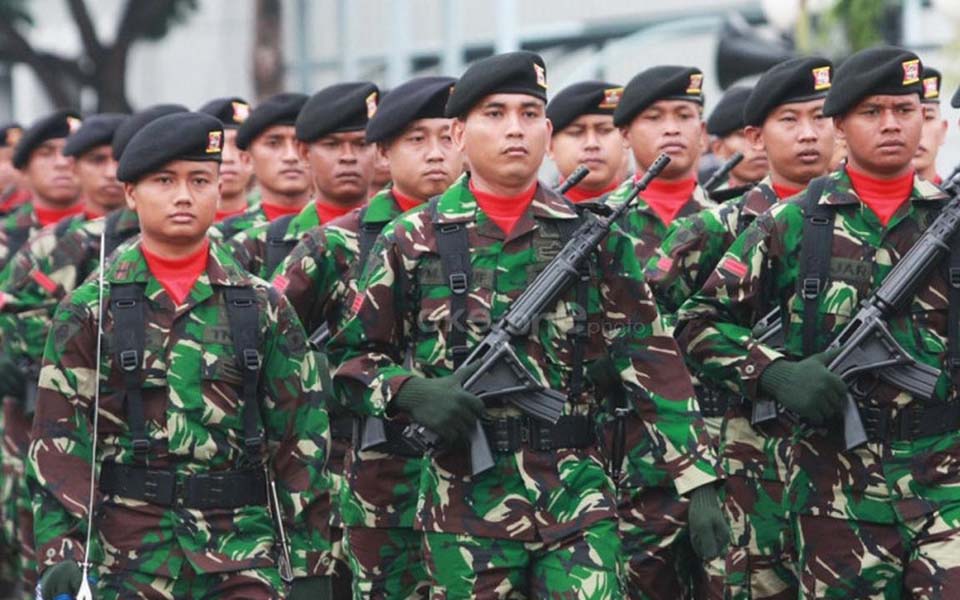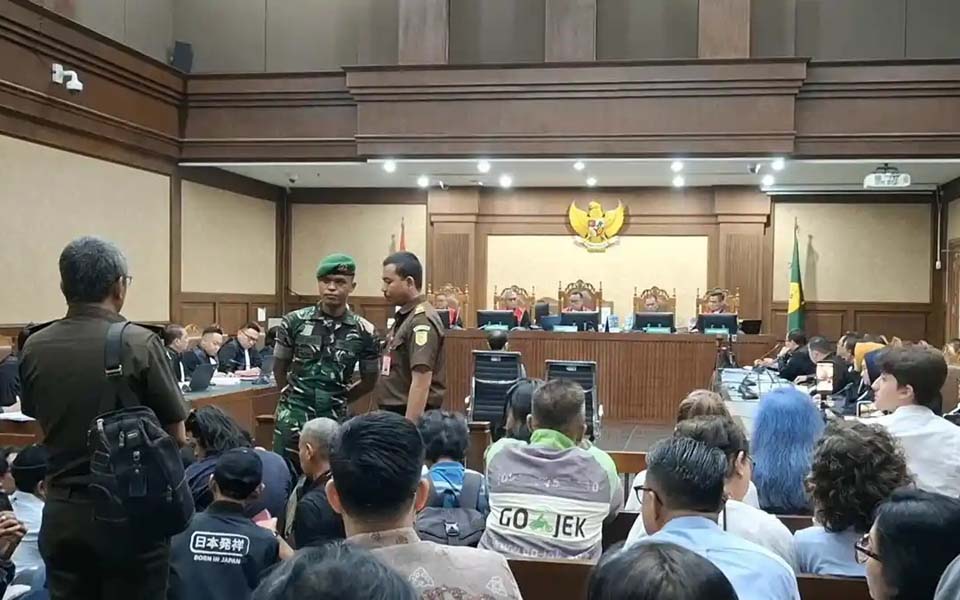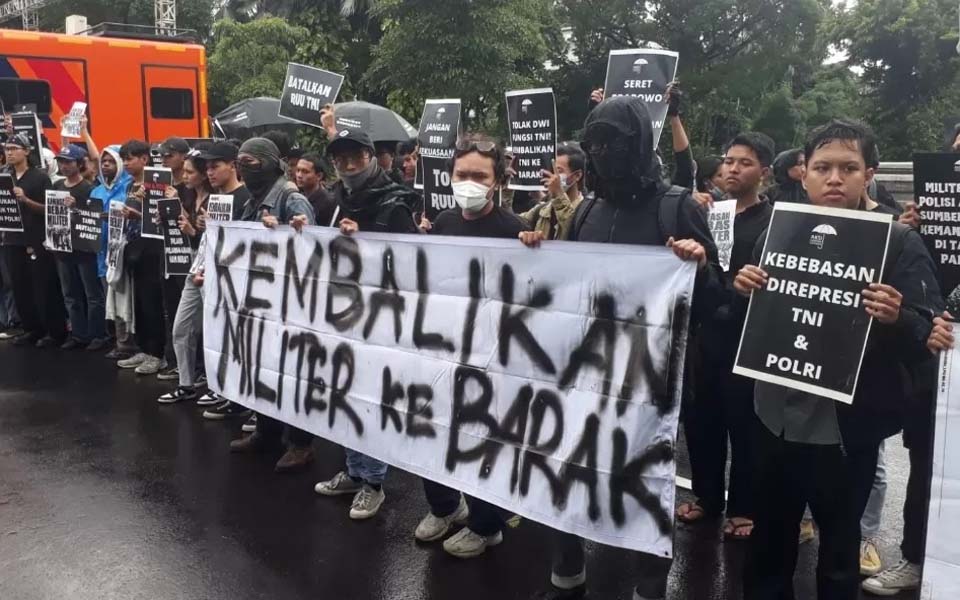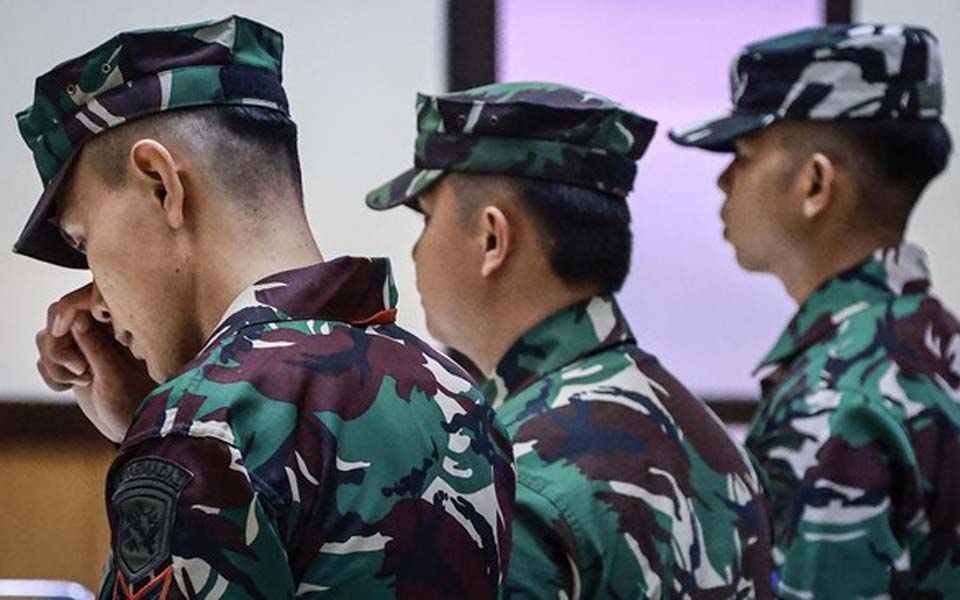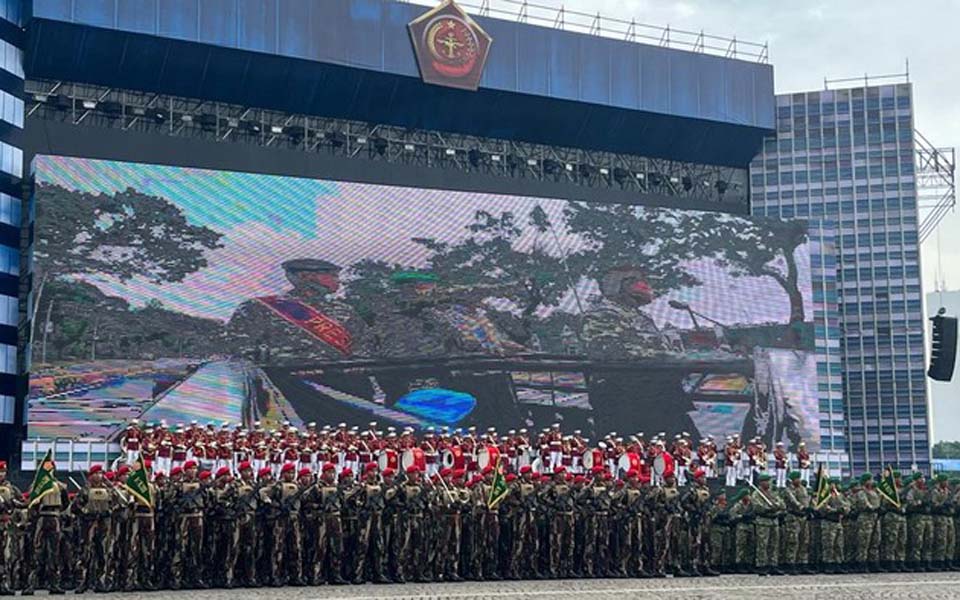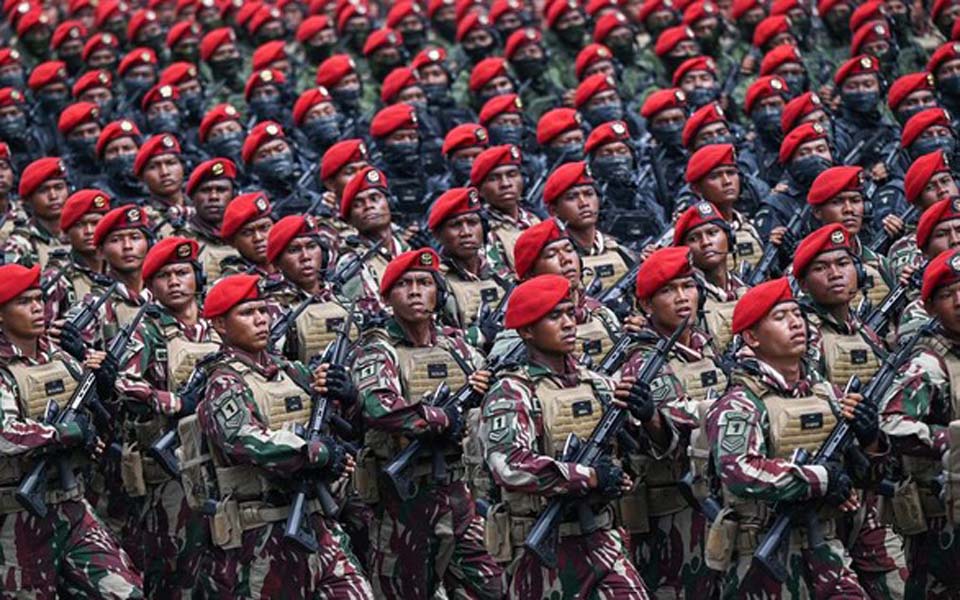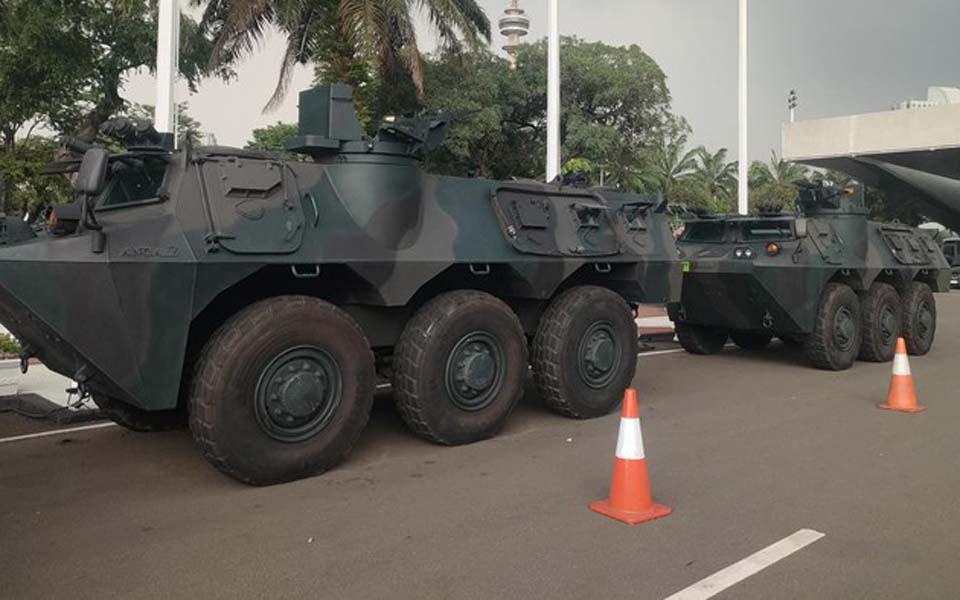Jessi Carina, Jakarta – The Civil Society Coalition believes that the Draft Law on Cyber Security and Defence (RUU KKS) threatens human rights because it involves the Indonesian Military (TNI) as a cyber criminal investigator, as regulated under Article 56 paragraph (1) letter d of the bill.
"The involvement of the TNI as an investigator of security and cyber defence will actually threaten human rights and the rule of law", the Coalition said in a press release on Saturday October 4.
The Coalition, which is made up of the Raksha Initiative, the Centra Initiative, Indonesian Human Rights Watch (Imparsial) and De Jure, holds the view, the involvement of the TNI in the formulation of the bill clearly contradicts Article 30 paragraph (3) of the 1945 Constitution, which asserts that the TNI is tasked with defending, protecting and maintaining the integrity and sovereignty of the state.
The TNI does not have any duties or functions as law enforcers.
They believe that the formulation of this article shows the growing military intervention in civilian life, which is increasingly harming the principles of civilian supremacy in the democratic state legal system, where the process of criminal law enforcement is in the realm of civilian authority, not military.
"Military involvement in the process of investigating criminal cases including security and cyber defence crimes is not only contrary to the Constitution and the TNI Law, but also threatens civil and democratic freedoms", the Coalition said.
Not only that, the formulation of articles is also an indication of the strengthening militarisation of cyber space.
According to the Coalition, these systematic steps have been seen since the revisions to the TNI Law, with the addition of Military Operations Other Than War (OMSP) related to handling the threat of cyber defence. These additional tasks are considered to be problematic with the lack of clarity regarding the gradation of threats.
This lack of clarity will provide space for the military to be involved in handling all levels of cyber security threats, not just limited to aspects related to the threat of cyber war (cyber conflict).
"In addition, with cyber defence which is the duty of the TNI, the focus and scope should emphasise defensive actions taken to destroy, eliminate or reduce the effectiveness of cyber threats to troops and assets (active cyber defence), or vice versa with actions taken to minimise the effectiveness of cyber threats to troops and assets (passive cyber defence)", the Coalition explained.
The coalition also considers that the involvement of the TNI increases the risk of abuse of power. Moreover, this involvement has not been accompanied by adequate accountability mechanisms.
This is because up until now, Law Number 31/1997 on Military Courts has not been revised. This law allows members of the TNI to be tried through military courts when committing violations.
"As a consequence, every criminal violation, both military and general criminal crimes, including security and cyber defence crimes, committed by members of the TNI, the prosecution must go through the military courts". They said.
The government through the Ministry of Law has completed the process of drafting the RUU KKS and the bill will be submitted to the House of Representatives (DPR) as priority legislation for 2026. However, a number of articles in the bill have been criticised because they still show problems that threaten democracy and the rule of law.
[Translated by James Balowski. The original title of the article was "Koalisi Sipil: RUU KKS Ancam HAM karena Libatkan TNI sebagai Penyidik".]





